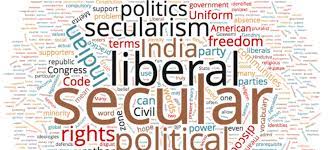LIBERAL SECULARISM
Author – SHUBHANGI MUKHERJEE, STUDENT AT ALLIANCE SCHOOL OF LAW
BEST CITATION – SHUBHANGI MUKHERJEE, LIBERAL SECULARISM, ILE LAW REPORTER (ILE LRE), 1 (1) of 2023, Pg. 15-20, APIS – 3920 – 0043 | ISBN – 978-81-964391-3-2.
Abstract
Liberal secularism is a political and social ideology that promotes individual freedom and equality as well as the separation of religion and state. It emphasises the significance of human rights, democracy, and the rule of law, and is based on the concept that people should be free to choose their own religious choices without intervention from the state or other external influences. Liberal secularism also acknowledges the diversity of ideas and lifestyles within a community and advocates for the protection of minority rights, particularly religious minorities’ rights. It aspires to build a society in which all persons, regardless of religion, race, or cultural background, may participate completely and equitably. Overall, liberal secularism holds that people should be free to practise their religion or belief system as they see appropriate, but that the state should be religiously neutral and not impose any specific religion on its population.Liberal secularism is a political theory that advocates for religion and political power to be separated. It holds that religion should not be used to influence government or public policy, but should instead be a private affair for people to believe and practise as they see suitable. Liberal secularism is frequently related with the concepts of individual liberty and diversity, as well as the conviction that a varied community should not be dominated by a single religion or moral system. Tolerance is one of the key foundations of liberal secularism. In a varied community, it is critical to respect others’ views and practises, even if they differ from one’s own.Liberal secularism recognises that people’s beliefs and views differ, and that these differences should be acknowledged and safeguarded. This includes the freedom to express one’s ideas and engage in religious practises so long as they do not violate the rights of others. Individual liberties are another key feature of liberal secularism. Liberty is a basic virtue in this philosophy, and it is regarded as crucial to an individual’s well-being and pleasure. This means that people should be free to conduct their lives as they see fit, free from interference from the government or any other authority. Individual autonomy, or the ability to make one’s own choices and decisions in life, is likewise valued by liberal secularism.
Keywords: Liberal Secularism, Ideology, Democracy, Religion, Freedom, Community, Human Rights
